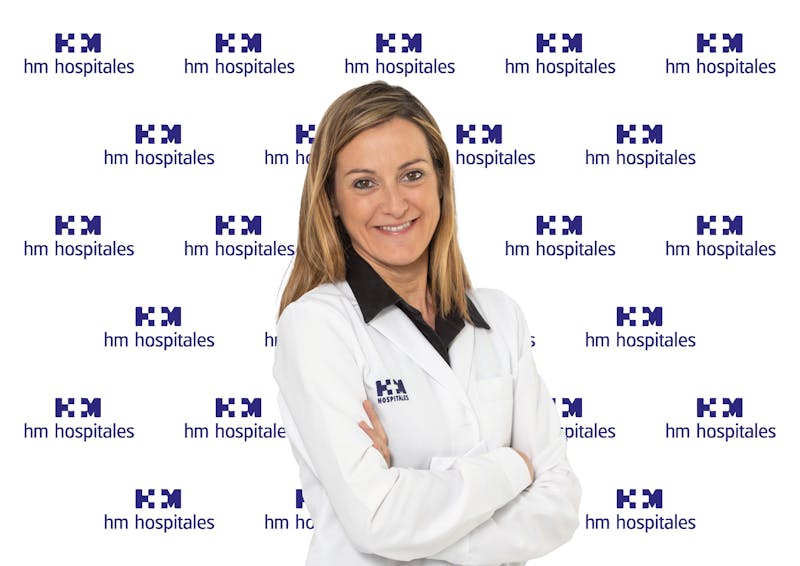The HM CIEC Comprehensive Centre for Cardiovascular Diseases, located at HM Montepríncipe University Hospital, strengthens its future vision and leadership in the field of cardiology within Spanish private healthcare with the appointment of Dr Leyre Unzué as Head of the Haemodynamics and Interventional Cardiology Unit.
With over 20 years of experience in cardiac intervention, Dr Unzué will lead a highly qualified multidisciplinary team. “We are beginning this new phase with the aim of reinforcing our leadership in cardiac intervention within the private sector. We will do so by expanding our range of services, boosting both clinical and scientific activity, and offering patients excellent care that is fully integrated with the rest of HM CIEC’s units,” she stated.
The Haemodynamics and Interventional Cardiology Unit currently includes three interventional cardiologists accredited by the Spanish and European cardiology societies. All of them are fully dedicated professionals, trained to perform the full range of cardiac interventional techniques.
“At HM CIEC, we welcome Dr Leyre Unzué as the new Head of the Haemodynamics and Interventional Cardiology Unit. Her more than 20 years of experience, clinical excellence, and research drive represent a tremendous asset. Dr Unzué has been a key figure in the development of our Unit, and we are confident that her leadership will strengthen the team and continue to elevate the outstanding clinical and scientific standards that already define our haemodynamics unit,” said Dr Leticia Fernández Friera, Director of HM CIEC.
The unit’s professional teams operate across three interventional suites located at HM Montepríncipe, HM Sanchinarro, and HM Puerta del Sur university hospitals. The nursing staff has extensive experience in haemodynamics and is certified for valve assembly and the full range of structural intervention procedures.
Dr Unzué highlights that ischaemic heart disease remains the most prevalent condition and accounts for a large part of their activity. However, in recent years, minimally invasive interventions for valvular diseases have increased, with techniques such as TAVI (transcatheter aortic valve implantation) or percutaneous treatments for mitral and tricuspid regurgitation, all of which clearly improve patients’ quality of life.
Innovation, research, and patient care
One of the top short- and medium-term priorities is to provide comprehensive and coordinated care through specialised interventional cardiology consultations, in collaboration with Clinical Cardiology, the Imaging Unit, and Cardiac Surgery.
On the technological front, the unit will strengthen structural interventions, with a particular focus on percutaneous treatment of the tricuspid valve and the expansion of percutaneous aortic valve implantation. Joint research projects within HM CIEC will also be promoted, both in cardiac imaging and clinical cardiology, along with participation in national and international multicentre studies in the fields of coronary and structural interventions.
In terms of training, a teaching programme in Interventional Cardiology will be launched in September 2025, aimed at cardiologists wishing to specialise in haemodynamics. This initiative will be integrated with the development of the cardiology MIR training programme.
Lines of work
Dr Unzué will promote four strategic lines of work with high clinical impact and strong development potential.
The first will focus on improving the diagnostic accuracy of ischaemic heart disease through the incorporation of tools capable of detecting vulnerable coronary plaques and microcirculatory abnormalities. This advancement will enable even more personalised therapeutic decision-making in patients with coronary artery disease.
The second line will aim to consolidate percutaneous aortic valve implantation (TAVI), a technique that has shown better outcomes than conventional surgery in multiple clinical scenarios. This will allow for an expanded profile of patients eligible for this minimally invasive treatment.
Third, the development of percutaneous treatment for resistant arterial hypertension will be strengthened through renal denervation—a growing technique backed by increasing scientific evidence, which is emerging as an effective alternative for patients who do not respond adequately to pharmacological therapy.
Finally, the unit will focus on the minimally invasive management of tricuspid regurgitation, a complex condition with high surgical risk, in which percutaneous procedures are demonstrating clear benefits in terms of both quality of life and prognosis.
Established career trajectory
Dr Leyre Unzué began her career in cardiac intervention at Hospital 12 de Octubre in Madrid, one of the leading centres for advanced structural interventional techniques. In 2011, she joined the Haemodynamics Unit at HM Hospitales, where, under the leadership of Drs Juan Luis Delcán and Eulogio García, she played a key role in the growth of clinical activity. Thanks to the team’s work, the centre became the highest-volume private facility nationwide and the only one capable of performing the full range of cardiac interventional procedures. During this period, more than 10,000 cardiac catheterisations and over 300 transfemoral aortic valve implantations were carried out.
Her professional profile is further distinguished by an active scientific career, including over 70 publications in international journals and the supervision of more than 50 research projects in collaboration with various academic institutions within the Spanish university system.

